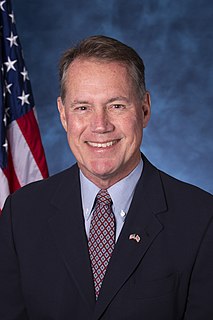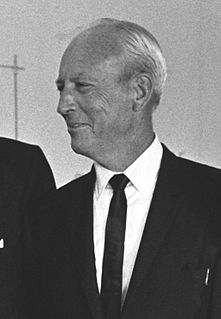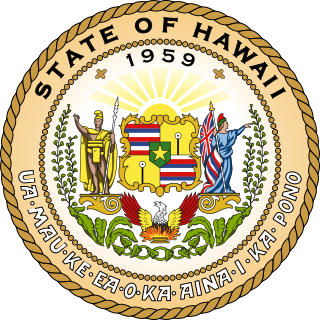
Edward Espenett Case is an American Democratic politician who is currently the U.S. Representative for Hawaii's 1st congressional district, which covers the urban core of Honolulu. He previously represented the 2nd district, which covers the rest of the state, from 2002 to 2007.

Mazie Keiko Hirono is a Japanese-born American politician serving since 2013 as the junior United States Senator from Hawaii. She is a member of the Democratic Party. Prior to her career in the Senate, Hirono served as a member of the Hawaii House of Representatives from 1981 to 1995 and as Hawaii's ninth lieutenant governor from 1994 to 2002 under Ben Cayetano. The Democratic nominee for Governor of Hawaii in 2002, Hirono was defeated by Republican Linda Lingle. From 2007 to 2013, she served as a member of the United States House of Representatives for Hawaii's 2nd congressional district.

Nelson Kiyoshi Doi, was the fifth lieutenant governor of Hawaii from 1974 to 1978 in the first elected administration of Governor George Ariyoshi. Doi was a member of the Hawaii Democratic Party.

The 1998 Massachusetts gubernatorial election was held on November 3, 1998. Acting Governor Paul Cellucci was elected to his first term as Governor of Massachusetts.

The 2010 South Carolina gubernatorial election took place on November 2, 2010. Incumbent Republican Governor Mark Sanford was term limited and unable to seek re-election. Primary elections took place on June 8, 2010 and a runoff election, as was necessary on the Republican side, was held two weeks later on June 22.

The 1970 Georgia gubernatorial election was held on November 3, 1970. It was marked by the election as Governor of Georgia of the relatively little-known former state Senator Jimmy Carter after a hard battle in the Democratic primary. This election is notable because Carter, often regarded as one of the New South Governors, later ran for President in 1976 on his gubernatorial record and won.

The 2010 Minnesota gubernatorial election was held on Tuesday, November 2, 2010 to elect the 40th Governor of the U.S. state of Minnesota for a four-year term to begin in January 2011. The general election was contested by the major party candidates State Representative Tom Emmer (R–Delano), former U.S. Senator Mark Dayton (DFL), and Independence Party candidate Tom Horner. After a very close race, Dayton was elected governor. Emmer would be elected to the United States House of Representatives four years later.

The Hawaii gubernatorial election of 2010 was held on November 2, 2010 to elect the next Governor and Lieutenant Governor of Hawaii. The winning candidates served a four-year term from 2010 to 2014. Incumbent Republican Governor Linda Lingle was term-limited in 2010 and not eligible to run for re-election. Former congressman Neil Abercrombie was declared the winner, defeating lieutenant governor Duke Aiona. Abercrombie was sworn in as the state's seventh Governor on December 6, 2010.

The Rhode Island gubernatorial election of 2010 was held on November 2, 2010. It was preceded by the primary election on September 14, 2010. Incumbent Republican Governor Donald Carcieri was term-limited in 2010. The non-partisan Cook Political Report, New York Times and CQ Politics rated the gubernatorial election as a toss-up.

The 2014 Hawaii gubernatorial election took place on November 4, 2014, to elect the Governor of Hawaii, concurrently with a special election to Hawaii's Class III Senate Seat, as well as other elections to the United States Senate in other states and elections to the United States House of Representatives and various state and local elections.

The 1959 Hawaii gubernatorial election was Hawaii's first gubernatorial election. The election was held on July 28, 1959; one month after Hawaiians had voted for statehood in accordance with the Hawaii Admission Act and one month before admission as the 50th state on August 21, 1959.

The 1962 Hawaii gubernatorial election was Hawaii's second gubernatorial election. The election was held on November 6, 1962, and resulted in a victory for the Democratic candidate, former Territorial Delegate John A. Burns over Republican William F. Quinn, the incumbent Governor of Hawaii. The election was a rematch between the candidates of the previous election, with the outcome reversed. Burns received more votes than Quinn in every county in the state.

The 1966 Hawaii gubernatorial election was Hawaii's third gubernatorial election. The election was held on November 8, 1966, and resulted in a victory for the Democratic candidate, incumbent Governor of Hawaii John A. Burns over Republican candidate, State Senator Randolph Crossley. Despite the close race, Burns received more votes than Crossley in every county in the state except Honolulu, which Crossley won by less than one percentage point.

The 1970 Hawaii gubernatorial election was Hawaii's fourth gubernatorial election. The election was held on November 3, 1970, and resulted in a victory for the Democratic candidate, incumbent Governor of Hawaii John A. Burns over Republican candidate, Judge Samuel Pailthorpe King. Burns received more votes than King in every county in the state.

The 1974 Hawaii gubernatorial election was Hawaii's fifth gubernatorial election. The election was held on November 5, 1974, and resulted in a victory for the Democratic candidate, Lt. Gov. George Ariyoshi over Republican candidate, former State Senator Randolph Crossley. Ariyoshi received more votes than Crossley in every county in the state.

The 1982 Hawaii gubernatorial election was Hawaii's seventh gubernatorial election. The election was held on November 2, 1982, and resulted in a victory for the Democratic candidate, Governor George Ariyoshi over Frank Fasi, running as an Independent Democrat, and the Republican candidate, State Senator D. G. Anderson. Ariyoshi received more votes than any other candidate in every county in the state.

The 1986 Hawaii gubernatorial election was Hawaii's eighth gubernatorial election. The election was held on November 4, 1986, and resulted in a victory for the Democratic candidate, Lt. Gov. John D. Waihee III over the Republican candidate, State Senator D. G. Anderson. Waihee received more votes than Anderson in every county in the state.

The 1990 Hawaii gubernatorial election was Hawaii's ninth gubernatorial election. The election was held on November 6, 1990, and resulted in a victory for the Democratic candidate, incumbent Governor John D. Waihee III over the Republican candidate, State Representative Fred Hemmings. Waihee received more votes than Hemmings in every county in the state.

The 2018 Hawaii gubernatorial election took place on November 6, 2018, to elect the Governor of Hawaii and Lieutenant Governor of Hawaii.



























